2021
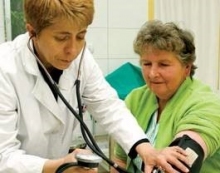
EURO Long-Term Care Forum focuses on WKC/OECD publication
The WHO European Regional Office Long-Term Care Forum was organized on November 4, and the organizers focused on the recent WKC/OECD publication about pricing long-term care for older persons. The forum was facilitated by Drs Satish Mishra and Stefania Ilinca of the WHO EURO Office.
Dr Sarah L Barber, Director WKC, presented the overall findings of the WKC/OECD study, followed by presentations of country case study results by Ricarda Milstein, Germany; Naoki Ikegami, Japan; and Luca Lorenzoni, Sweden and the USA. London School of Economics colleague, Maria Karagiannidou, presented experiences from Greece.
The discussion was attended by colleagues throughout the European region and focused on the challenges of financing long-term care. The WKC/OECD study can be found at https://extranet.who.int/kobe_centre/en/project-details/pricesetting2
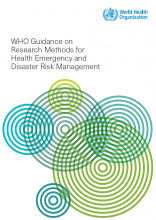
WHO publishes the first reference book on research methods for managing health emergencies and disaster risk
The WHO Kobe Centre (WKC) has coordinated a new reference book “WHO Guidance on Research Methods for Health Emergency and Disaster Risk Management” to address the serious research gap for informing policy and practice in this emerging field.
Seeking to address this, WKC convened an expert meeting in October 2018 in Kobe to identify key research needs in Health Emergency and Disaster Risk Management (Health EDRM). Research methods and ethics were identified as research priorities.
“The best possible evidence is crucial for managing the health risks of emergencies and disasters. The Guidance aims to fill the gap in the evidence base in Health EDRM. It will also support the implementation of the Sendai Framework for Disaster Risk Reduction 2015-2030 and the Sustainable Development Goals,” said project coordinator and WKC’s technical officer, Dr Ryoma Kayano.
The book has contributions from over 160 global experts from 30 countries, WHO headquarters and all Regional Offices. It contains 43 chapters covering a wide range of research fields. Case studies provide real-life examples of research methods and how they have modified policies. It will be useful for health professionals in Health EDRM, students and academics, government agencies and ministries, international organizations, and community and civil society organizations.
Read more here, and watch videos on the background and introduction to the Guidance.
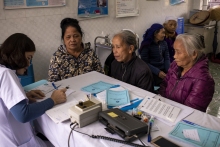
Key concepts for measuring equity in health care access for older people
Regular measurement and monitoring of health system performance is essential for countries to progressively advance universal health coverage (UHC). However, older people may be left behind because their healthcare needs are not being adequately considered in monitoring global progress towards UHC.
During April 2020 to May 2021, the WHO Kobe Centre, in partnership with researchers at the University of Sheffield, University of Liverpool and Osaka University, undertook a scoping review to see how equity in health care access and service coverage of older people should be measured.
The findings showed that it is particularly important to pay attention to older people’s complex care needs, capacity to make decisions and accessibility of services. Even in Japan which has universal health and long-term care insurance, several studies have revealed, for example, regional disparities in availability of services that older people need.
The scoping review found several concepts in common with current UHC monitoring frameworks such as availability, affordability and quality of services. As there is no consensus on the exact measurements to be used for these concepts, countries can develop locally relevant indicators of equity in service coverage for older populations that can be incorporated into UHC monitoring.
For key findings, read the Evidence Summary.
Read more about this project here.

Is financial hardship causing older people in Japan’s Kansai Region to miss out on health services?
Japan has several policies and programmes to protect its citizens from financial hardship due to high health spending, a fundamental principle of universal health coverage (UHC). However, the Kansai region has a high rate of households on public assistance. Given that many households have older members, little is known about whether or how many older people forego health services because of financial hardship.
On 1 October 2021, WHO Kobe Centre, in collaboration with researchers at the Kyoto University, Graduate School of Medicine, Department of Healthcare Economics and Quality Management, started a new project that explores how older people in the Kansai region pay for health care services including long-term care. We will identify if these older people are missing out on services that they need and, if so, why.
Through a mail survey and follow-up interviews with medical social workers in hospitals, local governments, and relevant community-based agencies, we will also identify policies that could be better utilized and more effectively implemented in the Kansai region. This is likely to have implications for policy and practice to strengthen financial protection for older people utilizing health care in Kansai.
Read more about this new project here.
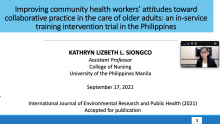
Virtual research conference on interprofessional education to advance care for older adults
Interprofessional education plays an important role in preparing the health workforce to deliver quality integrated care that meets the needs of older people. On 17 September 2021, researchers from the WHO Kobe Centre, Tokyo Medical and Dental University, the University of the Philippines, Manila, and Hue University of Medicine and Pharmacy, Viet Nam, gathered virtually to present their research findings to an international audience. The online conference was hosted by Dr Keiko Nakamura, Co-Principal Investigator of the research project and Professor of Tokyo Medical and Dental University’s Global Health Entrepreneurship Programme. Over forty participants from nine countries participated in the event.
The presentations highlighted key findings from different phases of the multi-year and multi-country research project. Dr Megumi Rosenberg, Technical Officer of the WHO Kobe Centre, gave an overview of global population aging trends and the WHO Kobe Centre’s research programme on advancing universal health coverage in the context of global population aging. In 2018-20, the WHO Kobe Centre carried out this research project that aimed to develop and evaluate a competency-based interprofessional education programme for health and social care workers in the Philippines, which can be adapted for use in Viet Nam and other low- and middle-income countries.
Responding to a question from the audience about how to get aging and health on the agenda of low- and middle-income countries, Dr Rosenberg emphasized the importance of research evidence that can convince policy makers of the urgent need to invest in strengthening health systems in light of rapid population aging and of the return on those investments to people and society.
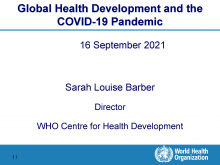
Online lecture to the Kobe Fukiai High School
Kobe Municipal Fukiai High School has been designated as the hub school of the World Wide Learning Consortium (WWL) by the Ministry of Education since April 2019. As part of the school’s program to widen views about global issues, Dr Sarah Barber, Director of WHO Centre for Health Development, gave an online lecture to more than 100 students in the International Course and English course on 16 September 2021. The presentation discussed Universal Health Coverage, and there were questions and answers about COVID -19 including the benefits of vaccination.
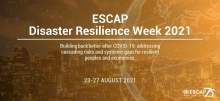
Panelist at the International Symposium organized by the United Nations Office for Disaster Risk Reduction
On August 27, 2021, Dr Ryoma Kayano, WHO Kobe Centre, participated as a panelist in an international symposium organized by the United Nations Office for Disaster Risk Reduction.
The symposium, entitled "Risk communication for better disaster risk management", discussed experiences in risk communication during disasters, based on findings from COVID-19 and other disasters and focused on key challenges and opportunities in the digital and social media era to enhance disaster risk management capacity.
Dr Kayano introduced the WHO Thematic Platform for Health Emergency and Disaster Risk Management Research Network (TPRN) of which WKC is the secretariat. He shared the latest findings on priority issues in the field of disaster and health risk management.

New report sheds light on pricing long-term care for older persons
Providing older persons with long-term care (LTC) that is accessible and affordable represents important public investments towards universal health coverage of essential health and social services, financial protection, and a social safety net for those unable to pay for care they need. Policy choices are critical in how health and social services for older people are delivered, and how prices for these services are set.
The WHO Kobe Centre (WKC) and the Organisation for Economic Co-operation and Development (OECD) collaborated with researchers in the WHO European and the Western Pacific regions to publish a new report on “Pricing long-term care for older persons”. Nine case studies were carried out in Australia, France, Germany, Japan, the Republic of Korea, the Netherlands, Spain, Sweden, and the United States of America (USA) to examine the organization, financing and price setting of LTC services, and to review experiences in using pricing to achieve policy objectives.
“Providing older persons with appropriate services that support their health and social needs helps to maintain their quality of life and functional ability. Purchasing and pricing are policy tools crucial to foster equity in payment; moreover, linking purchasing to quality is very important, although quality measurement in LTC requires further study and policy attention,” says Dr Sarah L Barber, WKC Director and coordinator of the report with Dr Luca Lorenzoni of the OECD.
The report draws policy lessons from the case studies to drive country action, particularly in low- and middle-income countries (LMICs).
“Some LMICs view formal LTC systems and public financing as unnecessary since they primarily rely on informal care givers to provide care to family members or people in their community. However, we show that this situation is changing rapidly due to population ageing, smaller families, and opportunities for women in the formal work force. Even countries with younger populations are facing challenges in meeting the health and social care needs of older persons,” she said.
Find the full report, case studies and summary policy briefs here. Click here to watch 5-minute interviews with the authors of the case studies.

New research project on financial hardship due to health spending in Kansai
Little is known about the financial difficulties older people may face in paying for healthcare or their decisions to forego care that they need.
The WHO Kobe Centre (WKC) has initiated a new project to explore financial hardship due to catastrophic or impoverishing spending on healthcare and financial barriers to accessing healthcare, and the extent to which financial difficulties are a problem for the growing number of older people in the Kansai region of Japan.
Led by the Tokyo Metropolitan Geriatric Hospital and Institute of Gerontology, this two-year project will involve Kansai-based researchers from Konan University in Kobe and Osaka University in Osaka, as well as researchers at the National Center for Global Health and Medicine Japan and Keio University in Tokyo. The research team will summarize recent evidence from the literature about financial protection policies, financial hardship, and unmet care needs affecting older people in Japan. In addition, the team will conduct secondary analysis of existing national household surveys, such as the Japan Household Panel Survey. The study is expected to produce statistical estimates of financial hardship and unmet care needs comparing older people in Kansai to their counterparts in other regions of Japan and to people in other age groups.
It is the first of two studies focusing on the Kansai region that WKC will be supporting to provide evidence for better financial protection policies to help older people receive the care they need without experiencing financial hardship. This work could be helpful to other regions and countries for making progress towards universal health coverage that addresses the health needs of older people. The project will also contribute to the 2021 Global Monitoring Report on Financial Protection in Health to be jointly published by WHO and the World Bank.
Read more here.

Community-based social innovations: Addressing the needs of older people in Japan
Community-based social innovation (CBSI) programmes aim to improve older people’s physical and psychological well-being and may help older persons living in communities to care for themselves, feel socially included and maintain their wellbeing.
The WHO Centre for Health Development (WKC) supported researchers at Osaka University to study CBSI in northern Hyogo Prefecture including Yabu City. The local government supported CBSI programmes such as physical exercise and cognitive games run by and for local older people at a venue within walking distance for participants.
The researchers found that older populations in rural communities participated enthusiastically in community activities, largely due to good collaboration between local government and older people, using existing community resources such as centres for older people. Older people who exercised and participated in group activities did so, not only to maintain mental and physical health, but also to connect with their community.
Older people showed leadership in sharing their needs with policy makers. This is a lesson that can be applied to other regions and countries. The researchers regard older people’s involvement in CBSI as a good message for younger people participating in CBSI activities who acknowledged learning a lot from older people’s attitudes towards ageing.

